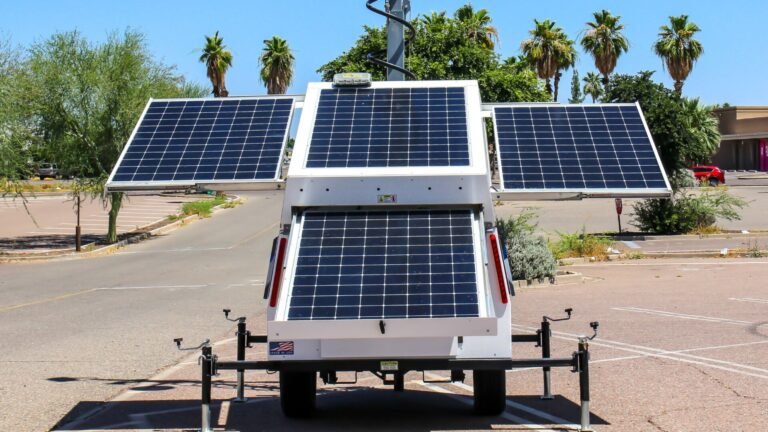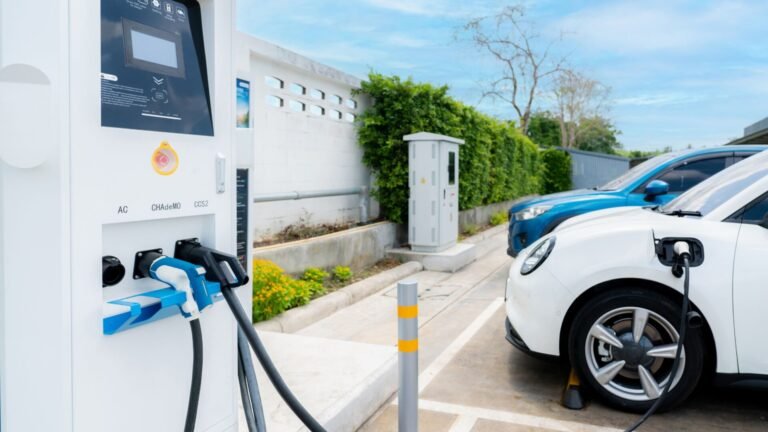In recent years, the significance of solar energy has surged beyond environmental and economic benefits, encompassing national security.
The transition to renewable energy sources like solar energy is not merely an ecological imperative but a strategic necessity for nations around the world.
This shift addresses critical issues such as energy security, resilience against cyber threats, and economic stability.
In this blog, we will delve into the multifaceted impact of solar energy on national security, elucidating how this clean energy source enhances energy independence, fortifies critical infrastructure, and mitigates geopolitical tensions.
By exploring these dimensions, we can understand why solar energy is becoming a cornerstone of national defense strategies.
1. Energy Independence and National Security
One of the foremost impacts of solar energy on national security is the enhancement of energy independence.
Historically, many nations have been heavily reliant on fossil fuel imports, making them vulnerable to supply disruptions, price volatility, and geopolitical conflicts.
The impact of solar energy in reducing this dependence is profound and multifaceted:
- Reduced Reliance on Foreign Oil: By harnessing solar power, countries can significantly diminish their reliance on imported oil and natural gas.
This shift not only stabilizes the energy supply but also insulates national economies from global oil market fluctuations.
Additionally, reducing dependence on foreign oil can decrease the influence of oil-rich nations on global politics, leading to a more balanced international power structure. - Domestic Energy Production: Solar energy empowers nations to produce energy domestically. This capability is crucial during geopolitical crises, natural disasters, or supply chain disruptions, ensuring a steady and reliable energy supply.
The local production of solar energy reduces the need for long and often vulnerable supply chains, enhancing national resilience. - Energy Security in Remote Areas: Solar energy systems can be deployed in remote and rural areas, reducing the dependence on centralized power grids and enhancing energy security for all regions within a country.
This decentralization can be especially beneficial for countries with vast and hard-to-reach areas, providing a stable and sustainable energy source where traditional energy infrastructure may be lacking. - Strategic Autonomy: By investing in solar energy, countries can achieve greater strategic autonomy. This autonomy allows them to pursue independent foreign policies without being constrained by energy needs, thereby enhancing their overall national security posture.
2. Protecting Critical Infrastructure
Solar energy plays a pivotal role in safeguarding critical infrastructure. The integration of solar power systems enhances the resilience of essential services, from military bases to emergency services:
- Microgrids and Energy Resilience: The deployment of solar-powered microgrids can fortify military bases, government buildings, and hospitals.
These microgrids provide a reliable energy source independent of the main power grid, ensuring operational continuity during blackouts or cyber-attacks.
Furthermore, microgrids can be tailored to meet the specific energy needs of different facilities, offering flexibility and reliability.
In disaster-prone areas, solar microgrids can be the difference between operational continuity and complete shutdown, enabling critical services to function when traditional energy sources fail. - Reduced Vulnerability to Cyber Threats: Traditional power grids are increasingly susceptible to cyber-attacks.
By decentralizing energy production with solar installations, the impact of potential cyber threats on national security is mitigated, as attackers find it harder to disrupt a distributed energy network.
Solar-powered systems can incorporate advanced cybersecurity measures, reducing the risk of large-scale power outages caused by malicious cyber activities.
Additionally, decentralized solar installations often use localized control systems that are less vulnerable to wide-reaching cyber-attacks, adding an extra layer of security to the nation’s critical infrastructure.
3. Mitigating Geopolitical Tensions
The geopolitical landscape is often shaped by energy resources. The impact of solar energy on reducing geopolitical tensions is considerable:
- Energy Resource Diversification: By diversifying energy resources through solar power, nations reduce their strategic vulnerabilities.
This diversification lessens the impact of energy-related geopolitical conflicts and promotes global stability. For instance, countries that heavily depend on oil and gas imports often find themselves at the mercy of exporting nations’ political agendas.
By investing in solar energy, these countries can mitigate the risks associated with such dependencies.
Furthermore, solar energy provides a reliable and steady supply of power, reducing the likelihood of conflicts that arise from energy shortages. - Lowering Energy Resource Competition: Solar energy, being abundant and universally accessible, diminishes the competition over finite fossil fuel resources.
This reduction in competition can alleviate international tensions and foster cooperative energy policies.
Traditional energy sources like oil and gas are unevenly distributed across the globe, leading to intense competition and, at times, conflicts over control and access.
Solar energy, on the other hand, is available everywhere the sun shines, allowing nations to produce their own energy locally.
This shift can lead to more collaborative international relations, as countries are less likely to engage in power struggles over limited resources.
Additionally, as more nations adopt solar energy, the global demand for fossil fuels decreases, potentially leading to lower prices and reduced economic strain on energy-importing countries.
4. Economic Stability and Security
The economic impact of solar energy is another critical facet of national security. A stable and robust economy is the backbone of national strength:
- Job Creation and Economic Growth: The solar industry is a significant source of employment. From manufacturing solar panels to installing and maintaining solar systems, this sector creates a multitude of job opportunities.
These jobs span various skill levels and fields, providing employment to a diverse workforce. The growth of the solar industry stimulates economic activity, attracting investments, fostering innovation, and supporting ancillary industries such as research and development, logistics, and construction.
This economic vitality contributes to national security by reducing unemployment and ensuring a stable economic environment. - Energy Cost Savings: Solar energy can lead to substantial cost savings for both governments and consumers. The transition to solar power reduces dependence on expensive fossil fuels, leading to lower energy bills.
For governments, these savings can be redirected to other critical areas such as defense, healthcare, and education.
Additionally, the predictable and stable pricing of solar energy shields economies from the volatility of global energy markets, ensuring financial stability and allowing for better long-term planning and budgeting.
This financial resilience is crucial for maintaining national security, as it enables countries to allocate resources more effectively to address emerging threats and challenges. - Economic Diversification: By investing in solar energy, countries can diversify their economies, reducing their dependence on traditional energy sectors.
This diversification makes economies more resilient to shocks and disruptions, such as fluctuating oil prices or geopolitical conflicts that can impact energy supplies.
A diversified economy is better equipped to adapt to changes and maintain stability, further enhancing national security.
5. Environmental Security
Environmental security is intrinsically linked to national security. The impact of solar energy in promoting environmental sustainability is profound:
- Reducing Carbon Footprint: Solar energy is a clean, renewable resource that significantly reduces carbon emissions.
Lowering greenhouse gases mitigates climate change effects, which can cause resource scarcity, mass migrations, and conflicts.
For instance, a nation that heavily invests in solar energy can decrease its carbon emissions drastically, contributing to global efforts to combat climate change.
This reduction in emissions also lessens the likelihood of climate-induced natural disasters, which can have devastating impacts on national security by displacing populations and straining resources. - Preserving Natural Resources: By reducing reliance on fossil fuels, solar energy helps preserve natural resources and ecosystems.
This preservation is vital for long-term environmental sustainability and national security. Fossil fuel extraction often involves environmentally harmful practices such as deforestation, water pollution, and habitat destruction.
Transitioning to solar energy mitigates these impacts, ensuring that natural resources remain intact and available for future generations.
Additionally, the sustainable management of natural resources supports biodiversity, which is essential for maintaining healthy ecosystems that provide critical services, such as clean water and air. - Enhancing Public Health: The adoption of solar energy also contributes to public health improvements, which indirectly supports national security.
Fossil fuel combustion releases pollutants that degrade air quality, leading to respiratory illnesses and other health issues.
By switching to solar energy, nations can reduce air pollution, resulting in a healthier population that is less burdened by medical costs and more capable of contributing to the economy and national defense.
6. Strategic Military Advantages
The military sector can harness solar energy for strategic advantages:
- Operational Efficiency: Solar-powered bases and equipment reduce the logistical burden of fuel supply lines.
This efficiency is crucial in remote or hostile environments, enhancing operational effectiveness. For example, military operations in isolated regions often face challenges in securing reliable fuel supplies.
Solar energy can provide a continuous and dependable power source, reducing the need for convoys that can be targeted by adversaries. This capability not only enhances mission success but also safeguards personnel. - Silent and Portable Energy Solutions: Solar energy provides silent and portable power solutions for military operations.
These solutions are less detectable by enemies and can be rapidly deployed in the field. Portable solar panels and solar-powered generators can supply electricity for communication devices, surveillance equipment, and other critical technologies without the noise and heat signatures associated with conventional generators.
This stealth advantage is particularly valuable in covert operations where maintaining a low profile is essential.
Additionally, the rapid deployment of solar energy systems enables military units to establish operational bases quickly and efficiently, providing a tactical edge in dynamic combat environments.
Conclusion
The impact of solar energy on national security is multi-dimensional, encompassing energy independence, infrastructure resilience, geopolitical stability, economic robustness, environmental sustainability, and military efficiency.
As nations strive to fortify their security frameworks, integrating solar energy emerges as a strategic imperative.
By embracing solar power, countries can mitigate risks, reduce vulnerabilities, and ensure a stable and secure energy future.
At Tamesol, we are dedicated to advancing solar technology and facilitating its adoption. Our innovative solutions not only contribute to a sustainable future but also enhance national security.
We offer cutting-edge solar products and services designed to meet the unique needs of various sectors, ensuring maximum efficiency and reliability.
Partner with Tamesol to harness the full potential of solar energy and secure a resilient and prosperous future for your nation.





